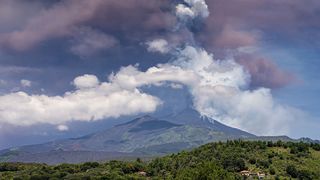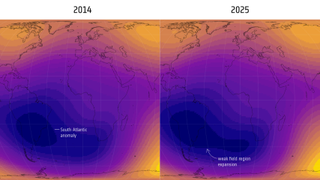
Sascha Pare
Sascha is a U.K.-based staff writer at Live Science. She holds a bachelor’s degree in biology from the University of Southampton in England and a master’s degree in science communication from Imperial College London. Her work has appeared in The Guardian and the health website Zoe. Besides writing, she enjoys playing tennis, bread-making and browsing second-hand shops for hidden gems.
Latest articles by Sascha Pare
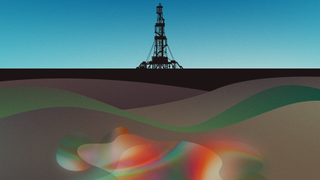
Earth's crust hides enough 'gold' hydrogen to power the world for tens of thousands of years, emerging research suggests
By Sascha Pare published
Reservoirs of hydrogen gas that form naturally in Earth's crust could help humans decarbonize. The challenge now is finding these accumulations and working out how best to mine them, experts say.
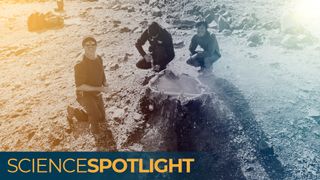
A huge helium shortage is looming — but ancient rocks in Earth's crust may be hiding massive reservoirs
By Sascha Pare published
For decades, helium has been produced with natural gas, generating huge carbon emissions. Now, geologists are looking for new helium sources — and finding enormous "carbon-free" reservoirs that could revolutionize the industry.
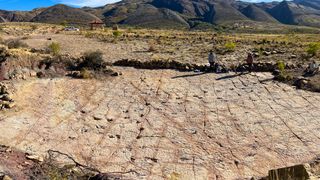
18,000 dinosaur tracks discovered along ancient Bolivian coastline — and they set a new record
By Sascha Pare published
Researchers have counted 16,600 fossilized dinosaur footprints and 1,378 swim tracks at a site in Bolivia that showcase a variety of behaviors and different theropods from the Cretaceous period.
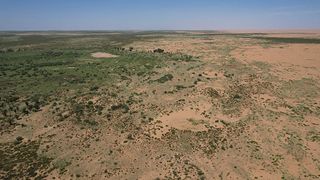
China has planted so many trees it's changed the entire country's water distribution
By Sascha Pare published
Huge "regreening" efforts in China over the past few decades have activated the country's water cycle and moved water in ways that scientists are just now starting to understand.
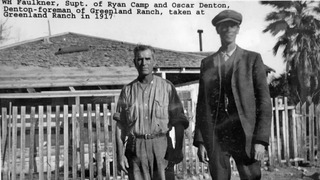
Death Valley's 'world's hottest temperature' record may be due to a human error
By Sascha Pare published
A new analysis of July temperatures in Death Valley between 1923 and 2024 suggests the world record near-surface air temperature of 134 F measured in July 1913 may be erroneous.
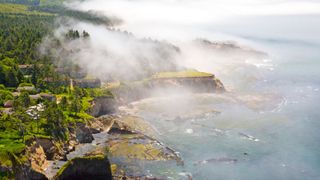
Ruptures from 'silent' earthquakes deep in Earth's crust can heal themselves within hours
By Sascha Pare published
Researchers re-created the conditions deep inside the Cascadia subduction zone and found that fractured rocks can repair themselves during, or just hours after, slow-motion earthquakes.
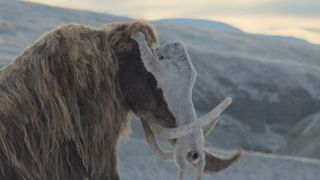
A new Apple TV series brings to life iconic animals of the last ice age.
By Sascha Pare published
A clip from the upcoming series "Prehistoric Planet: Ice Age" shows how iconic ice age creatures adapted to their changing environment as temperatures rose and ice sheets started to melt.

Scientists discover new type of lion roar
By Sascha Pare published
Researchers used artificial intelligence to analyze more than 3,000 recordings of African lions and found that the animals have an "intermediate" roar as well as a "full-throated" roar.
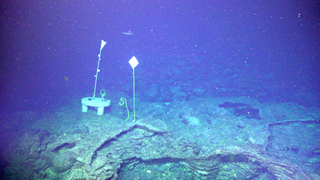
Underwater volcano off Oregon coast likely won't erupt until mid-to-late 2026
By Sascha Pare published
Researchers thought that Axial Seamount might erupt in 2025, but recent data suggest the underwater volcano could take a bit longer to blow its top.
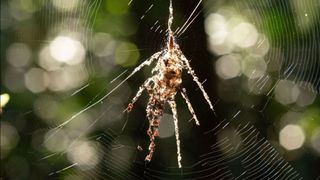
Tiny spiders that build giant 'puppet' decoys from disembodied prey discovered in Peru and Philippines
By Sascha Pare published
Researchers have documented the strange antics of two tropical spider species that build giant, arachnid-shaped decoys out of silk, plant matter and prey remains in their webs.
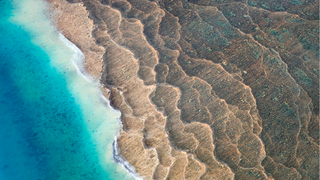
Breakup of ancient supercontinent Nuna created 'incubators' for complex life, study finds
By Sascha Pare published
Ancient supercontinent Nuna's breakup around 1.5 billion years ago set off a chain of events that made Earth more habitable, new research suggests.
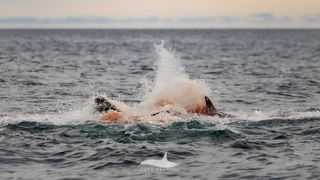
Incredible, first-of-their-kind images show an orca being born in Norway — and the rest of its pod forming a protective circle
By Sascha Pare published
Scientists with the Norwegian Orca Survey and Orca Channel have documented, for the first time and in astounding detail, the birth of an orca and the newborn's first hour.
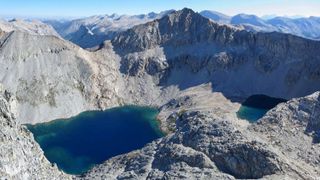
Triple Divide Peak: Montana's unique liquid 'crossroads' where water can flow into three oceans
By Sascha Pare published
Triple Divide Peak in Montana is the only place on Earth where water can flow into one of three different oceans, according to some definitions.
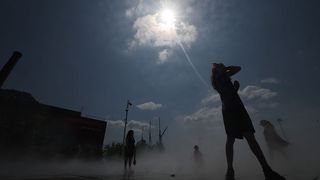
It's official: The world will speed past 1.5 C climate threshold in the next decade, UN says
By Sascha Pare published
The UNEP's 2025 Emissions Gap report has found that global average temperatures will exceed 1.5 C (2.7 F) before 2035 — and this just days before the COP30 climate summit kicks off in Brazil.
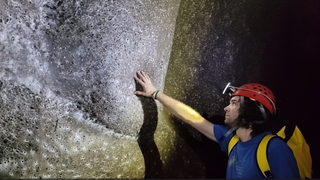
World's biggest spiderweb discovered inside 'Sulfur Cave' with 111,000 arachnids living in pitch black
By Sascha Pare published
A giant colonial spiderweb in a sulfuric cave on the border between Greece and Albania may be the largest ever found — and it was built by spiders we didn't know liked the company of others.
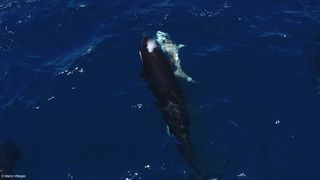
Orcas in the Gulf of California paralyze young great white sharks before ripping out their livers
By Sascha Pare published
An orca pod that made headlines last year for gutting a whale shark has struck again, this time perfecting a technique that involves paralyzing young great white sharks to eat their livers.
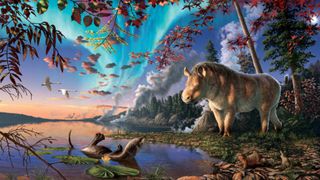
Ancient 'frosty' rhino from Canada's High Arctic rewrites what scientists thought they knew about the North Atlantic Land Bridge
By Sascha Pare published
Researchers have gained new insights into rhinoceros evolution and the longevity of the North Atlantic Land Bridge from analyzing the perfectly preserved fossils of a "frosty" Arctic rhino.
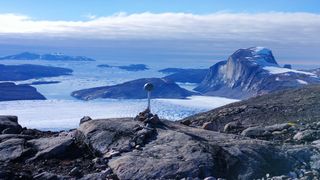
Greenland is twisting, tensing and shrinking due to the 'ghosts' of melted ice sheets
By Sascha Pare published
Earth's mantle is so gooey, it takes eons for material that has been displaced by the weight of ice sheets to flow back. And Greenland is very much still processing its glacial past, a new study shows.
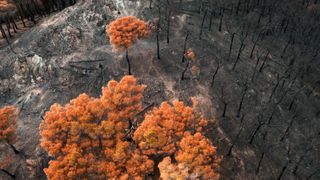
22 of Earth's 34 'vital signs' are flashing red, new climate report reveals — but there's still time to act
By Sascha Pare published
Earth's systems are nearing tipping points that could plunge the planet into a "hothouse" regime — but there's still time to prevent that from happening, scientists say.
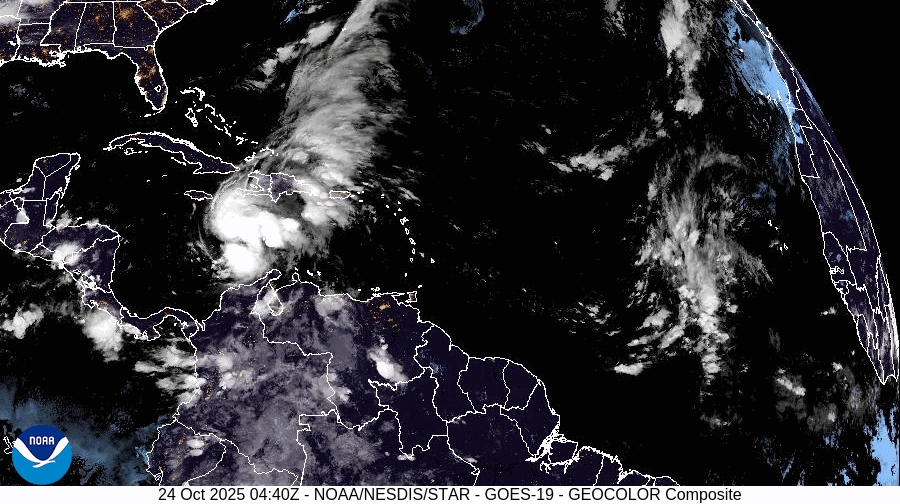
'Near stationary' Tropical Storm Melissa is moving slower than a person walking — and it may bring deadly flash floods to the Caribbean
By Sascha Pare published
Tropical Storm Melissa is moving at a snail's pace but will intensify rapidly over the weekend as it feeds off near-record-warm water temperatures in the Caribbean Sea, forecasters say.
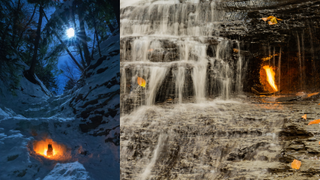
Eternal Flame Falls: New York's mini waterfall that hides a grotto filled with undying fire
By Sascha Pare published
Eternal Flame Falls sits on a bed of shale rocks rich in organic matter. As this matter breaks down, it produces highly flammable natural gas that escapes through cracks in the ground.
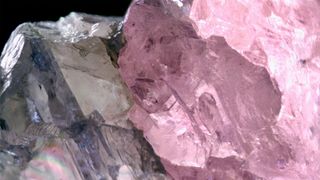
Rare half-pink rough diamond with 'astounding' weight of 37.4 carats discovered in Botswana
By Sascha Pare published
Experts at a laboratory in Botswana managed by the Gemological Institute of America recently examined an extraordinary natural diamond with two distinct color zones.
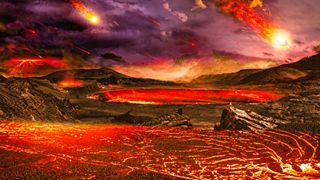
Scientists discover first direct evidence that slivers of 'proto-Earth' may survive today
By Sascha Pare published
In a first, researchers have discovered fragments of Earth's precursor that contain distinctive chemical fingerprints in ancient rocks from Greenland, Canada and Hawaii.
Get the world’s most fascinating discoveries delivered straight to your inbox.
